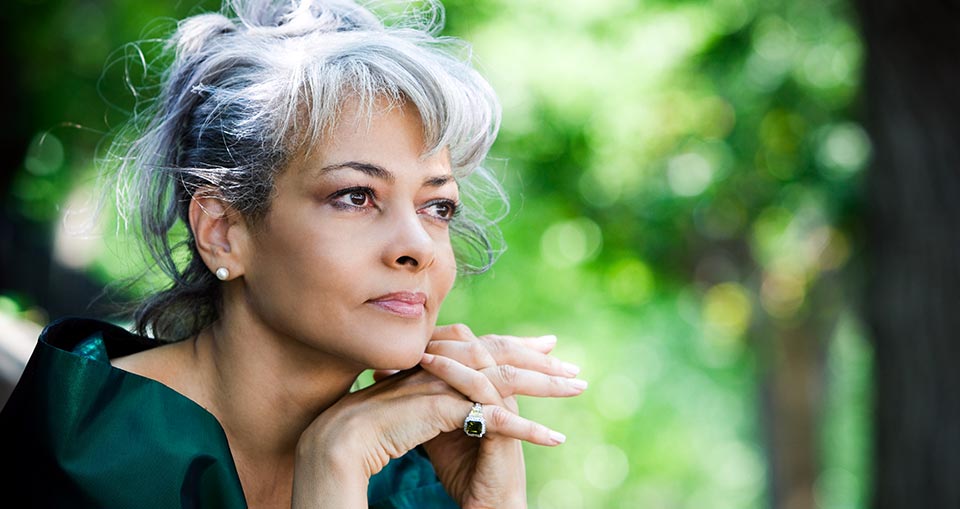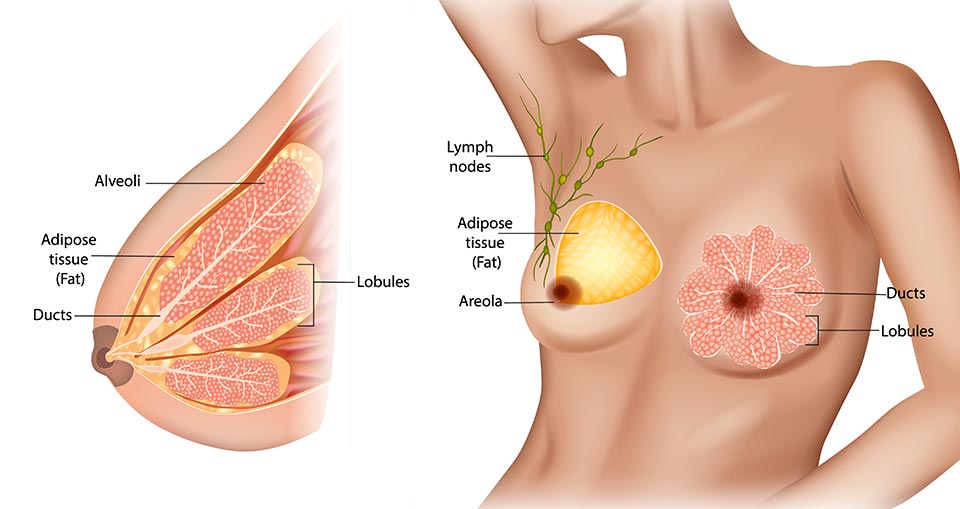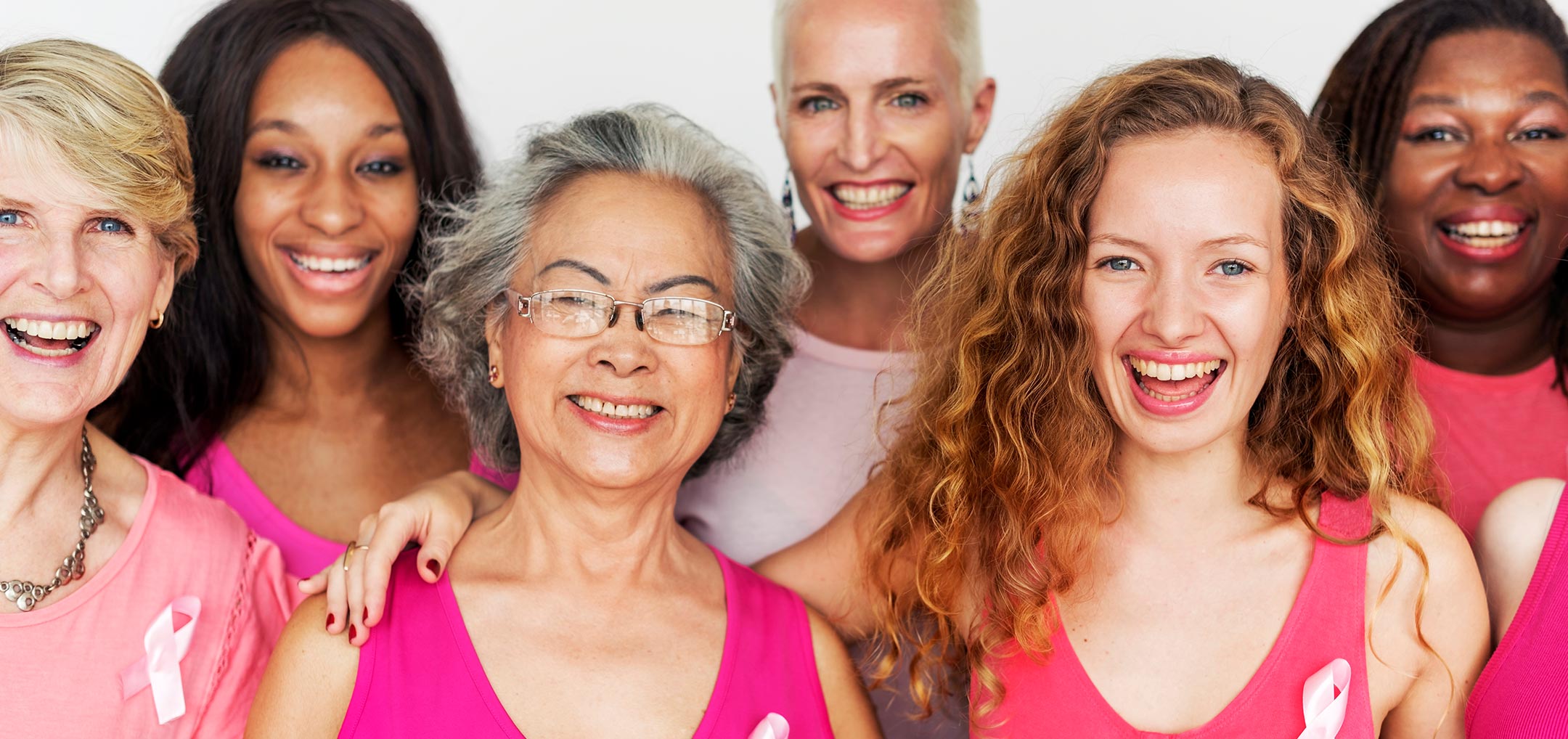BREAST CANCER FACTS

What You Should Know About Breast Cancer?
Breast cancer is a cancer that forms within tissues of the breast. The most frequent area of formation is usually the ducts (tubes that carry milk to the nipple) and lobules (glands that produce milk). Breast cancer occurs in both men and women, although male breast cancer is rare.

When breast cancer cells spread, the cancer cells are often found in lymph nodes around the breast. Breast cancer can also spread to almost any other part of the body. The most common areas for the cancer to spread are; the bones, liver, lungs, and brain. New tumors have the same type of abnormal cells and the same name as the primary tumor. For example, if breast cancer spreads to the bones, the cancer cells in the bones are actually breast cancer cells. The disease is metastatic breast cancer and not bone cancer. For that reason, the cancer is treated as breast cancer and not bone cancer. Physicians call the new tumor “distant” or metastatic disease.
ASK THE DOCTOR
CLICK HERE
TREATMENT HOURS
Mon: 6:30am – 5:30pm
Tues: 6:30am – 5:30pm
Wed: 6:30am – 5:30pm
Thurs: 6:30am – 5:30pm
Fri: 6:30am – 5:30pm
Sat: CLOSED
Sun: CLOSED
PAGE: Print | PDF | Email
Risk Factors
It has never been determined, the exact causes of breast cancer. Physicians frequently cannot explain why one woman may develop breast cancer and another woman does not. Researchers however do know that bumping, bruising, or touching the breast will not cause breast cancer.
Breast cancer is not contagious and cannot be “caught” from another person. Research studies have shown that women with certain risk factors are more likely than others to develop breast cancer. A risk factor is a factor that may increase the chance of developing a disease.
Research studies have found the following risk factors for breast cancer:
- Age: The odds of developing breast cancer increase as a woman gets older. The majority breast cancer cases occur in women over the age of 60. Breast cancer is not common before female menopause.
- Personal History of Breast Cancer: A woman who has developed breast cancer in one of her breast is at an increased risk of developing cancer in her other breast.
- Personal Family History: A woman’s risk of breast cancer is higher if her mother, sister, or daughter had developed breast cancer. The risk is higher if her personal family member developed breast cancer before the age of 40. Having other relatives with breast cancer (within her mother’s or father’s family) may also increase a woman’s risk.
- Certain Breast Changes: Some women have cells in the breast that look abnormal under a microscope. Having certain types of abnormal cells (atypical hyperplasia and lobular carcinoma in situ [LCIS]) increases the risk of breast cancer.
- Gene Changes: Changes in specific genes increase the risk of breast cancer. The genes include BRCA1, BRCA2, and others. Tests can sometimes indicate the presence of specific gene changes in families with many women who have had breast cancer. Health care providers may recommend ways to try to reduce the risk of breast cancer, or to improve the detection of breast cancer in women who have these changes in their genes. NCI offers publications on gene testing.
- Reproductive And Menstrual History:
- The older a woman is when she has her first child, increases the chances of her developing breast cancer.
- Women who had their first menstrual period before age 12 increases the risk of breast cancer.
- Women who experience menopause after age 55 are at an increased risk of breast cancer.
- Women who never had children are at an increased risk of breast cancer.
- Women who take menopausal hormone therapy with estrogen plus progestin post menopause also appear to have an increased risk of breast cancer.
- Large, well-designed studies have shown no correlation between abortion or miscarriage and breast cancer.
- Race: Breast cancer is diagnosed more frequently in white women than Latina, Asian, or African American women.
- Radiation Therapy To The Chest: Women who had radiation therapy to the chest (including breasts) before age 30 are at an increased risk of breast cancer which includes women treated with radiation for Hodgkin’s lymphoma. Studies show that the younger a woman was when she received radiation treatment, the higher her risk of breast cancer later in life.
Breast Density: Breast tissue may be dense or fatty. Older women whose mammograms (breast x-rays) show more dense breast tissue are at increased risk of breast cancer. Taking DES (diethylstilbestrol): DES was given to some pregnant women in the United States between about 1940 and 1971. (It is not prescribed to pregnant women.) Women who took DES during their pregnancy may have a slightly increased risk of breast cancer. The possible effects upon their daughters are under study.
- Being overweight or obese after menopause: The chance of getting breast cancer after menopause increases in women who are overweight or obese.
- Lack of physical activity: Women who are physically inactive throughout their life may have an increased risk of breast cancer. Being active may help reduce the risk of breast cancer by preventing weight gain and obesity.
- Drinking alcohol: Studies suggest that the more alcohol a woman consumes, the greater her risk of breast cancer.
Other possible risk factors are currently under study. Researchers are studying the effect of diet, physical activity, and genetics on breast cancer risk. They are also studying whether specific substances in the environment can increase the risk of breast cancer.
Many risk factors can be avoided. Others, such as family history, cannot be avoided. Women can help protect themselves avoiding risk factors whenever possible.
It is also important to keep in mind that the majority of women who have known risk factors do not get breast cancer. Also, the majority of women who develop breast cancer do not have a family history of the disease. In fact, except for growing older, most women with breast cancer have no clear risk factors.
If you think you may be at risk, you should discuss the risks with your doctor. Your doctor may be able to suggest ways to reduce your risk and can plan a schedule for checkups.

Symptoms:
Common symptoms and signs of breast cancer include:
- Change in how the breast or nipple feels
- A lump or thickening in or near the breast or in the underarm area
- Nipple tenderness
- A change in how the breast or nipple looks
- A nipple turned inward into the breast
- The skin of the breast, areola, or nipple may be scaly, red, or swollen. It may have ridges or pitting so that it looks like the skin of an orange.
- Nipple discharge (fluid)
Early breast cancer usually does not cause pain. Still, a woman should see her health care provider about breast pain or any other symptom that does not go away. Most often, these symptoms are not due to cancer. Other health problems may also cause them. Any woman with these symptoms should tell her doctor so that problems can be diagnosed and treated as early as possible.
EXPERT & EXPERIENCED: TALK TO A BREAST CANCER TREATMENT EXPERT
Get a second opinion on your breast cancer treatment options from Florida Center for Breast Conservation, your breast cancer treatment experts.